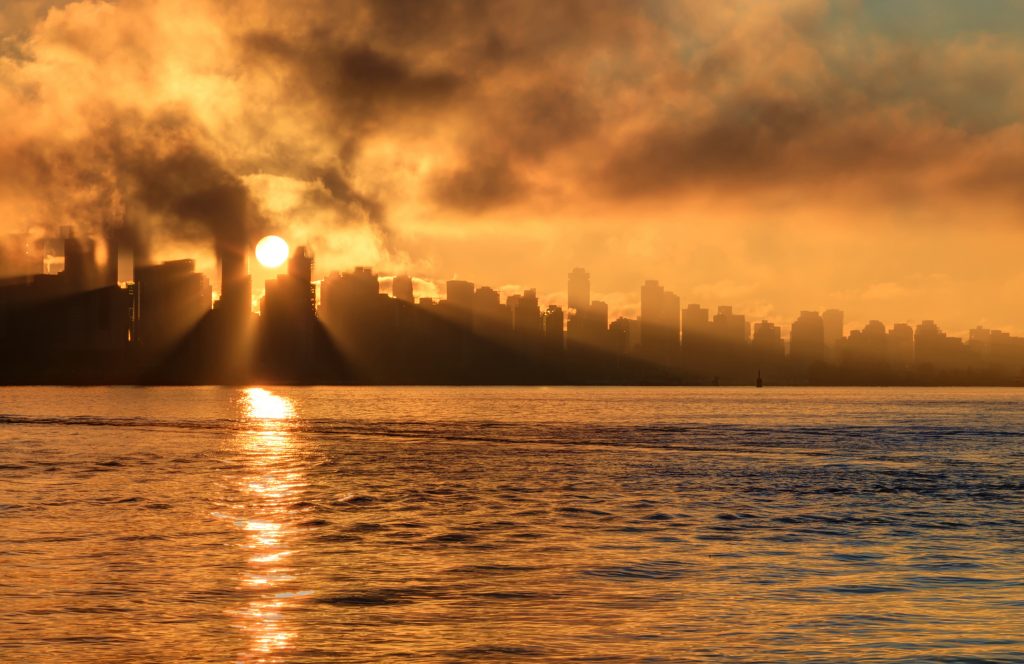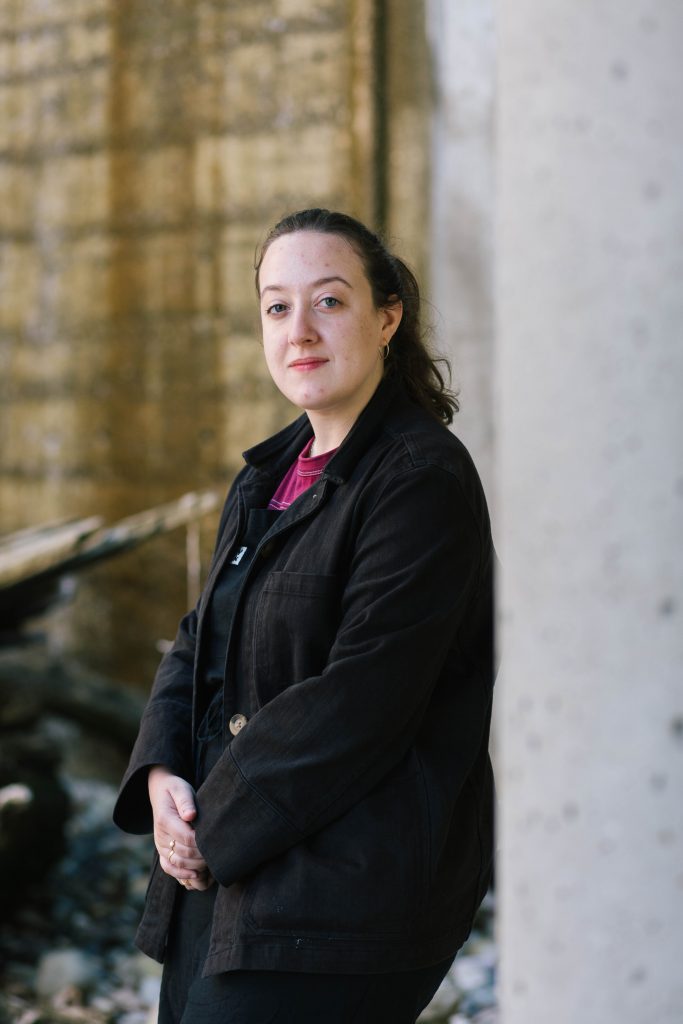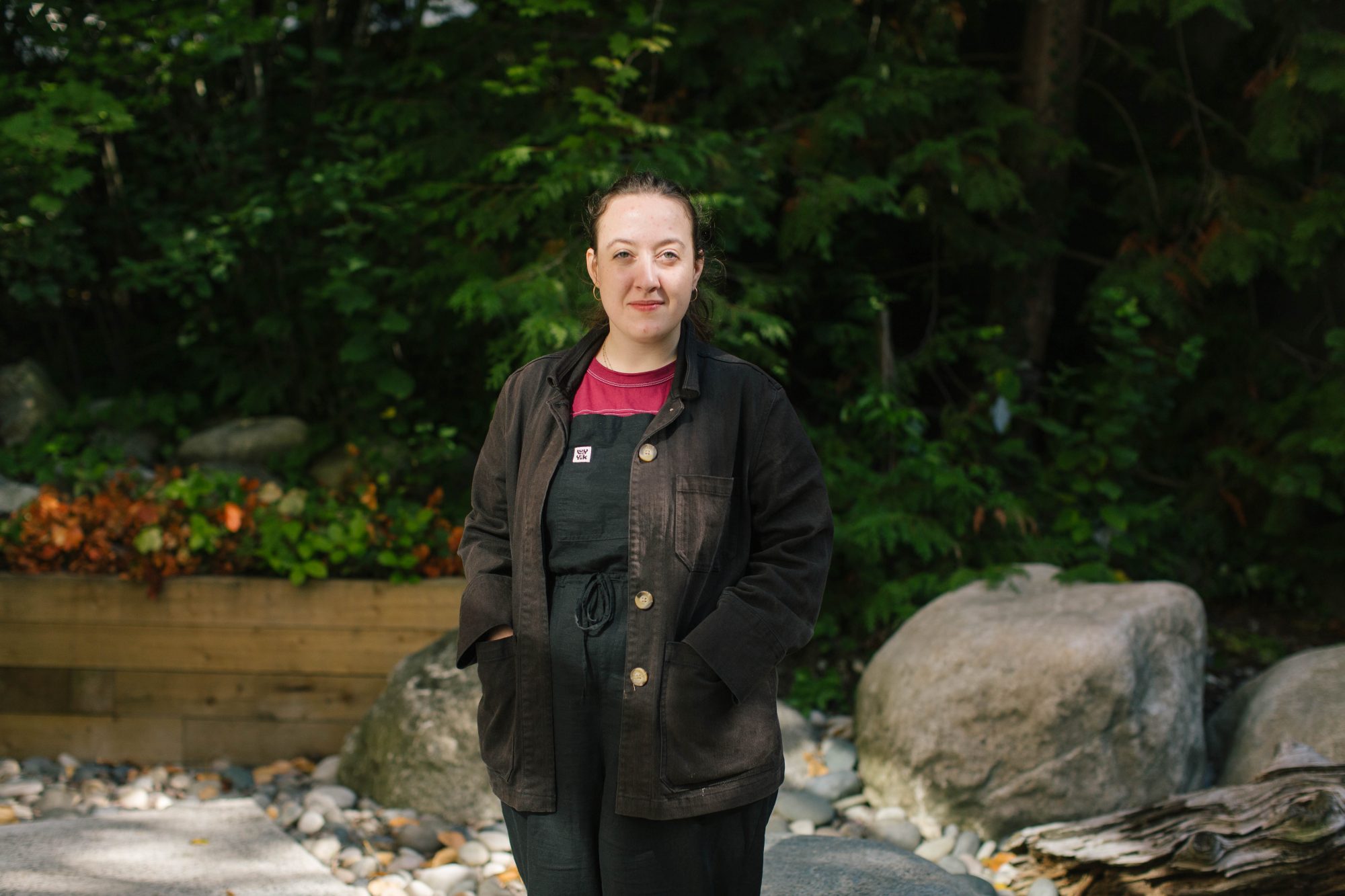Living climate change is a series of personal stories from university students in British Columbia who have lived through climate-related emergencies and disasters.
by Rachel Stern, as told to Molly Henderson
Photos by Jackie Dives
Rachel Stern grew up in New York City and would often visit her family in Cape Town, South Africa. Although rental prices soared every year in New York City, Rachel and her parents lived in a rent-stabilized apartment, which allowed them to stay in their home. This awakened her to the importance of strong housing policy.
Rachel moved to British Columbia in 2021, where she is now completing a PhD with a focus on extreme heat, tenants’ rights and healthy aging at the University of British Columbia in Vancouver. Soon after arriving on the West Coast, Rachel met her partner and the couple rented their first apartment together – a single-story, high-ceilinged laneway home on the corner of a busy, relatively treeless intersection on the border of South Vancouver. This is where she and her partner were living when, in the summer of 2022 oppressive heat and smoke descended upon her adopted city for the second year in a row.
It was just unbearably hot. I found out later that the medication I was on made it harder for your body to deal with heat. That might’ve been the difference between me and my partner. He was like, “I’m hot, but this isn’t making me feel physically ill.”
I tried going to a cooling centre one day. By the time I got there I was really overheated and the centre was crowded. We were easing out of the Omicron variant. I remember being nervous about people being around me. The air conditioning wasn’t that strong.

“This is a sensory nightmare.”
We would go to the beach and swim to cool down. I remember coming back from the beach and having that sandy, gritty feeling on your feet and being so hot trying to sleep. I was like, “This is a sensory nightmare.”
It was my first summer living somewhere where I didn’t have access to air conditioning. Our laneway house is just two main rooms, but it has really tall ceilings. That means the heat gets trapped in the summer. It’s right on a major road. Because there’s always a lot of cars, it makes it hard to open the windows when you’re trying to sleep.
There was this period of six or seven days when it wouldn’t cool down at night. “Should we sleep with the front door open at night, too?” We honestly talked about it because it’s the most effective way to get cool air into your place. But I decided, no, we can’t do that. Our windows still made me nervous. We’re on the ground floor. Someone can easily climb in.
I remember finally getting to sleep and waking up to my neighbour coughing over a cigarette at 4:00 am. That’s a smell I remember: cigarette smoke. Wildfire smoke as well. It’s a weird smell. I know it means bad things. But there were fires on the mountain in Cape Town where my family lived when we used to visit. That smoky smell reminds me of my childhood and makes me weirdly homesick.
Towards the end of the summer, I remember Vancouver having the worst air quality in the world. You’re supposed to open your windows at night to get it to cool down, but you can’t because it’s smokey outside. The smoke felt very apocalyptic. I have one memory of standing and looking at the mountains after I got off the bus, because the mountains are always the grounding things. If I can see the mountains clearly, the day is clear. That day you just couldn’t see anything. Just that wall of smoke. I remember trying to take photos of it but the photos never capture it properly. When the smoke cleared you’re like, “Oh, my God, I forgot how much I can see.” If you have just days on end of that it feels like, “This is normal now.”

In the winter, because I was worried about what this summer was going to be like, we bought the cheapest portable AC we could find so that it was a bit more discounted. We bought a cheap air purifier from Canadian Tire. My house is filled with gadgets for survival. Like, “Okay, I’m going to control this tiny little space to stay safe.” Our landlord doesn’t prevent us from having an air conditioner, but I know that a lot of tenants have to sneak in air conditioners. Or they can’t afford to buy an air conditioner or run it.
Improving people’s abilities to modify their homes in the ways their bodies need is key. Obviously, that’s leaving out a population of unhoused people that are also vulnerable and need a different set of resources. It’d be great to install heat pumps, but you can’t do that as a renter. It’s brought me hope the ways older people survived things like the heat dome and the networks of care that people who have lived long-term in Vancouver have created. As a newer person to the city, I feel like trying to become more part of the communities that exist here. I would love to help or check in on others, as well as have a space to talk about, “It’s really hot in our place and I don’t know what to do.” That definitely brings me some hope.
This testimony was co-created during a Climate Disaster Project workshop hosted by the Centre for Climate Justice at the University of British Columbia. The project is an international teaching newsroom that works with disaster-affected communities to document and investigate their stories. For more information, please visit www.climatedisasterproject.com.
